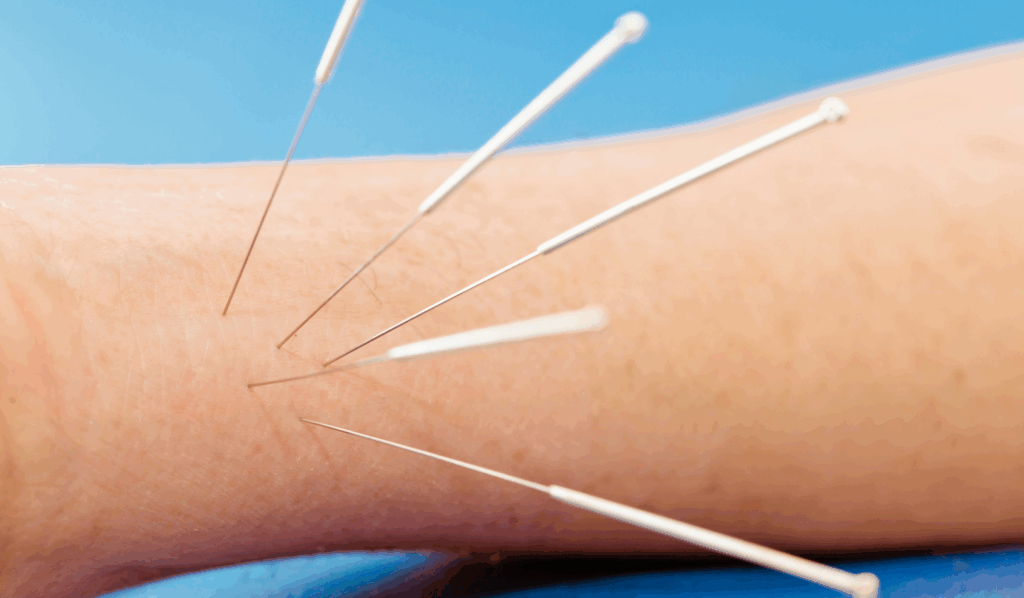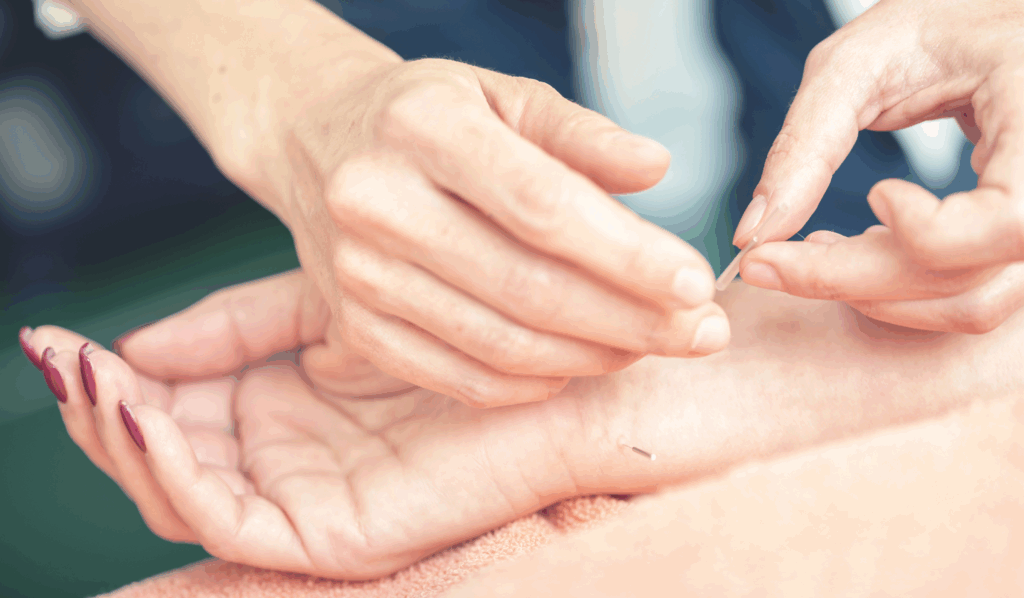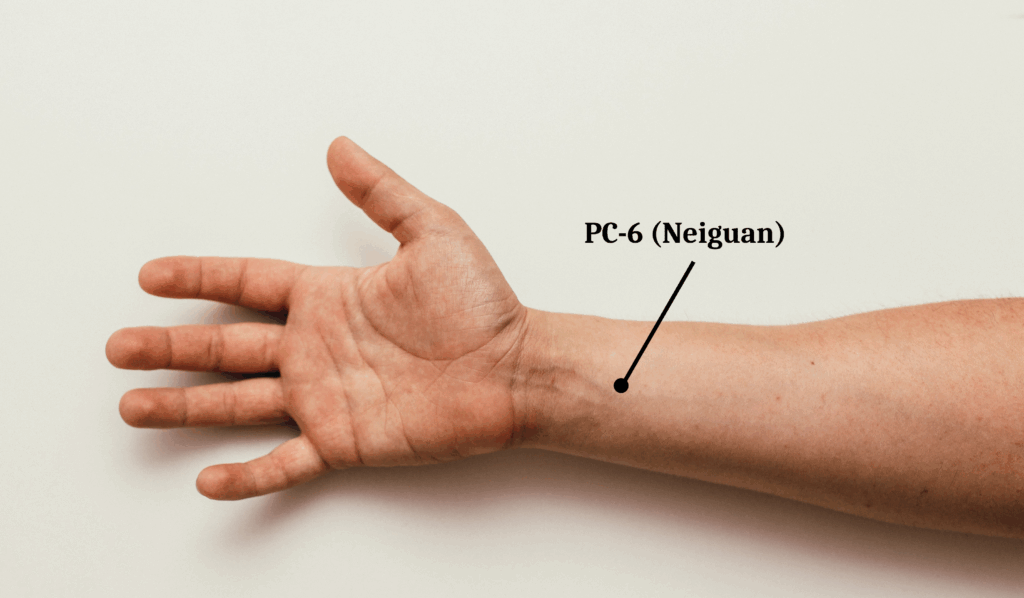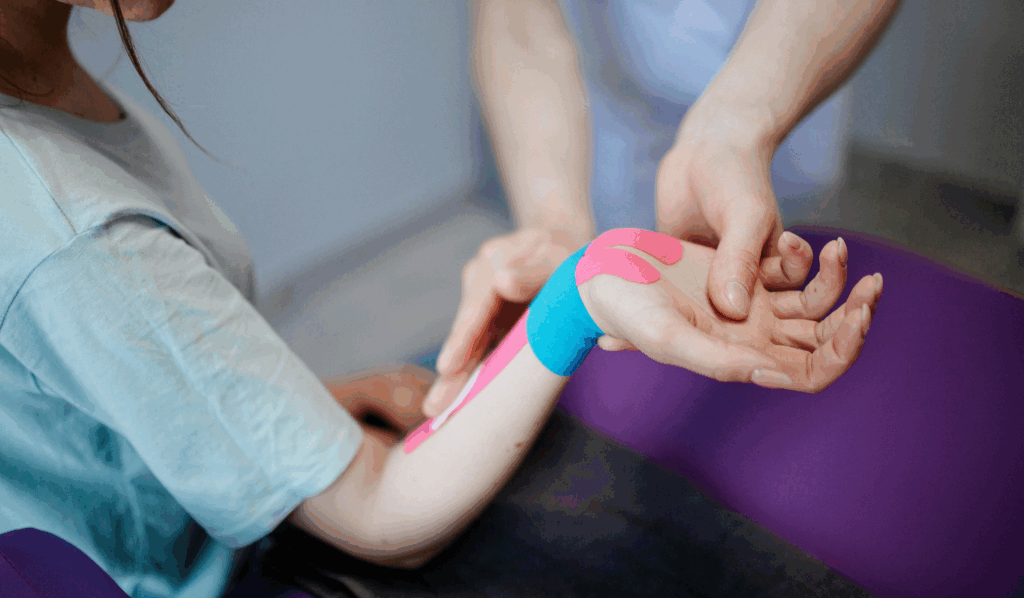Life often brings waves of worry that leave the mind unsettled and the body tense. In those moments, it is natural to long for something gentle yet powerful that can ease the burden you carry. In Traditional Chinese Medicine, the PC 6 point, also called Neiguan or the Inner Pass, has been valued for centuries as a pathway back to harmony. Neiguan calms stress and restores balance by regulating the flow of energy through the heart and chest, steadying the breath, and easing emotional tension. More than just a spot on the wrist, Neiguan is seen as a source of comfort that can quiet a restless mind and restore a sense of steadiness when the world feels overwhelming.
When stress and anxiety begin to feel heavy, turning to PC 6 can be like offering yourself a moment of compassion. Whether through the care of our acupuncturists at ACA Acupuncture and Wellness or by simply pressing the point on your own, Neiguan encourages relaxation and balance throughout the body. Many people also find relief for digestion and heart health through this practice, a reminder of how closely the body and mind are connected. Each gentle press is an invitation to pause, reconnect, and rediscover the balance and peace that are always within you.
Key Takeaways
- PC 6, also called Neiguan, is one of the most important acupuncture points for calming stress and restoring balance in the body and mind.
- Beyond stress relief, Neiguan supports digestion, circulation, emotional stability, and deeper, more restorative sleep.
- The point is easy to locate, found two to three finger widths above the wrist crease between the central tendons of the inner forearm.
- Both acupressure and professional acupuncture can be used to stimulate PC 6, making it valuable for at-home self-care as well as in clinical treatment.
- When integrated into daily routines, Neiguan becomes a reliable tool for building resilience, easing anxiety, and encouraging long-term balance.
What Is PC 6 (Neiguan)?
PC 6, or Neiguan, translates to “Inner Pass.” It belongs to the Pericardium meridian, which is associated with the protective energy of the heart. The point is located on the inner forearm, about two to three finger widths above the wrist crease, between the tendons of the palmaris longus and flexor carpi radialis muscles.
Neiguan is considered a master point because of its influence on both body and mind. It calms the spirit, eases stress, supports healthy digestion, and relieves discomfort in the chest. Its connection to the heart, mind, and stomach makes it valuable for addressing emotional strain, nausea, and physical tension.
Classical Chinese medical texts describe PC 6 as a point that calms the Shen, regulates the movement of Qi, and restores balance. For centuries, it has been used to relieve what we now recognize as anxiety, panic, nausea, and insomnia by reopening the “inner pass” so energy can circulate freely and reduce both physical and emotional blockages.
Broader Health Benefits of PC 6 (Neiguan)
Emotional Balance
Beyond stress relief, PC 6 is used to stabilize mood swings and ease sudden surges of panic. It is often recommended when emotional pressure builds quickly, such as before a performance, an exam, or other high-stakes events. The point’s ability to promote calm focus makes it valuable for navigating moments of acute emotional intensity.
Digestive Harmony
Neiguan is one of the most frequently prescribed points for nausea of many origins. It is commonly applied for motion sickness during travel, morning sickness in pregnancy, and nausea resulting from chemotherapy. Clinical research has also highlighted its effectiveness in regulating stomach function, making it a trusted point for restoring digestive ease in challenging circumstances.
Cardiovascular Support
PC 6 holds a central place in treatments involving the chest. It is used to ease angina-like discomfort, regulate irregular rhythms, and support smoother circulation. Modern studies have shown that stimulation of PC 6 can modulate cardiovascular responses during postural changes and may enhance blood flow by influencing autonomic nervous system regulation. This makes it valuable for both preventative and therapeutic cardiovascular care.
Cognitive Protection
Emerging research suggests that PC 6 may offer protective effects against stress-related cognitive decline. Studies in animal models have shown that acupuncture at Neiguan can mitigate memory loss caused by chronic mild stress. These findings support its broader role in maintaining neurological balance during periods of emotional or environmental strain.
Neural Regulation
Research on PC 6 also highlights its influence on brain regions tied to emotional regulation and anxiety. Resting-state fMRI scans indicate altered activity in networks related to mood and autonomic control, helping explain why Neiguan is often used in cases of nervous agitation or anxiety disorders.
Sleep Improvement
When sleep is disrupted by a restless mind or physical unease, PC 6 is often selected to promote deeper rest. By settling the Shen, or spirit, it encourages the body to transition into restorative sleep cycles. This makes it especially useful for individuals whose insomnia is tied to emotional turbulence or irregular heart activity at night.
Together, these benefits show how Neiguan restores harmony by influencing multiple systems at once. It steadies circulation, soothes the digestive tract, regulates emotional responses, protects memory, and supports balanced neural activity. This multi-system impact makes PC 6 a foundational point in acupuncture for calming stress and guiding the body back to equilibrium.
How to Locate and Stimulate PC 6
Step-by-Step Location Guide
- Place three fingers (index, middle, and ring) across the inner wrist crease
- The point lies just above the top finger, between the two central forearm tendons
- Apply light pressure until you feel a mild tenderness or sensitivity—this is PC 6
Acupressure Technique for Home Use
- Use your thumb to apply steady, gentle pressure for two to three minutes
- Small, slow circular motions can deepen the calming effect
- Stimulate both arms for balance and repeat as needed throughout the day
- Common times to use this technique include before stressful events, while traveling to ease nausea, or before bedtime to support sleep
Professional Acupuncture Treatment
In clinical practice, licensed acupuncturists often insert fine, sterile needles at PC 6 to activate the point more deeply. The sensation is usually mild, described as a gentle ache, heaviness, or spreading warmth. Treatments are personalized and frequently combine PC 6 with other points, such as HT 7 (Shenmen) to support sleep and emotional health, or ST 36 (Zusanli) to strengthen digestion and vitality. This needle-based approach enhances energy flow and allows practitioners to address both root causes and immediate symptoms, making the therapy more comprehensive and effective.
Integrating PC 6 Into Holistic Wellness Routines
Incorporating PC 6 into everyday practices enhances its calming and restorative effects. By pairing Neiguan stimulation with other holistic approaches, you create a well-rounded routine for both body and mind.
- Meditation and Breathwork: Applying gentle pressure to PC 6 while practicing deep, slow breathing encourages relaxation and helps anchor focus, making mindfulness sessions more effective.
- Herbal Support: Calming herbs such as chamomile, passionflower, or traditional Chinese formulas can complement PC 6 stimulation, offering a natural boost to stress and anxiety relief.
- Mind-Body Practices: Combining acupressure with yoga, tai chi, or qigong magnifies the benefits by aligning physical movement, breath, and energy flow.
When Neiguan is integrated consistently into daily wellness rituals, it becomes a reliable tool for maintaining balance and resilience in the face of stress.
Safety and Precautions
While PC 6 (Neiguan) is safe for most people to use at home, it’s important to apply it mindfully and know when professional guidance is best.
- General Safety: Gentle acupressure is typically harmless, but pressing too hard may cause soreness or bruising.
- Pregnancy Considerations: Acupuncturists often avoid certain points during pregnancy, including PC 6 in later stages, because of its influence on uterine activity. Always consult a licensed practitioner before use.
- Injury Awareness: If you have a wrist sprain, fracture, or inflamed tendons, skip self-stimulation until healed.
- Professional Care: For chronic conditions such as severe anxiety, insomnia, or cardiovascular issues, PC 6 should be part of a tailored acupuncture treatment plan under professional supervision.
Taking these precautions ensures that Neiguan can be safely integrated into both self-care and therapeutic routines.
Finding Steadiness Through the Inner Pass
PC 6, or Neiguan, is more than an acupuncture point. It is a reminder that the body and mind are deeply connected, and that balance can be restored through simple, intentional practices. From calming stress to easing digestive discomfort, supporting heart health, protecting memory, and improving sleep, its influence spans multiple systems.
At ACA Acupuncture and Wellness, our practitioners harness the power of PC 6 to calm stress, ease tension, and guide the body back to balance. Whether through professional acupuncture or supportive self-care techniques, Neiguan becomes a pathway to peace of mind and emotional steadiness. By integrating PC 6 into your wellness routine with the guidance of our practitioners, you can find relief from overwhelm and rediscover a natural sense of harmony.
Sources:
Li, C., Wang, Y., Li, B., & Su, S. (2022). Effects of acupuncture at Neiguan in neural activity of related brain regions: A resting-state fMRI study in anxiety. Frontiers in Neuroscience, 16, Article 845.
Li, J., Li, J., Chen, Z., Liang, F., Wu, S., & Wang, H. (2012). The influence of PC6 on cardiovascular disorders: A review of central neural mechanisms. Acupuncture in Medicine, 30(1), 47-50.







Recent Comments